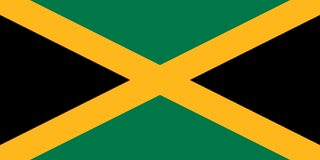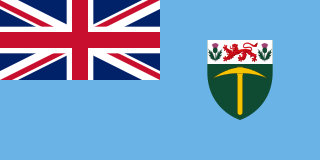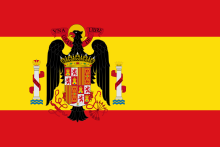
The United States competed at the 1968 Summer Paralympics in Tel Aviv, Israel from November 4 to 13, 1968. The team finished first out of the twenty-eight competing nations in the medal table and won ninety-nine medals: thirty-three gold, twenty-seven silver and thirty-nine bronze. Eighty-two American athletes took part; fifty-three men and twenty-nine women.
Dartchery was contested at the Summer Paralympic Games from 1960 to 1980. Competitions were carried out in pairs: mixed pairs from 1960 to 1980, and men's pairs and women's pairs from 1972 to 1980.
The 1968 Summer Paralympics was an international multi-sport event held in Tel Aviv, Israel, from November 4 to 13, 1968, in which athletes with physical disabilities competed against one another. The Paralympics are run in parallel with the Olympic Games; these Games were originally planned to be held alongside the 1968 Summer Olympics in Mexico City, but two years prior to the event the Mexican government pulled out due to technical difficulties. At the time, the event was known as the 17th International Stoke Mandeville Games. The Stoke Mandeville Games were a forerunner to the Paralympics first organized by Sir Ludwig Guttmann in 1948. This medal table ranks the competing National Paralympic Committees (NPCs) by the number of gold medals won by their athletes.

Australia competed at the 1968 Summer Paralympics in Tel Aviv, Israel. The Games significantly expanded in 1968 when compared to previous years, as did the Australian team and the events included in the Games. Mexico City were originally to host the 1968 Paralympics, however, they were moved to Tel Aviv in Israel.

France competed at the 1968 Summer Paralympics in Tel Aviv, Israel from November 4 to 13, 1968. The French team contained fifty-five athletes; forty-one men and fourteen women. The team finished fifth in the medal table and won a total of thirty-two medals; thirteen gold, ten silver and nine bronze.

Israel was the host nation of the 1968 Summer Paralympics in Tel Aviv. The Israeli team finished third in the medal table and won sixty-two medals: eighteen gold, twenty-one silver and twenty-three bronze. Over 750 athletes from 28 nations took part in the Games; the Israeli team included 53 athletes, 37 men and 15 women.

Jamaica was one of twenty-eight nations that competed at the 1968 Summer Paralympics in Tel Aviv, Israel from November 4 to 13, 1968. The team finished fourteenth in the medal table and won a total of five medals; three gold, one silver and one bronze. Eleven athletes represented Jamaica at the Games; seven men and four women.

South Africa was one of twenty-eight nations that sent athletes to compete at the 1968 Summer Paralympics in Tel Aviv, Israel from November 4 to 13, 1968. The team finished tenth in the medal table and won a total of twenty-six medals; nine gold, ten silver and seven bronze. Eight South African athletes competed at the Games; five men and three women.

Japan competed at the 1968 Summer Paralympics in Tel Aviv, Israel from November 4 to 13, 1968. The team finished sixteenth of the twenty-eight competing nations in the medal table and won a total of twelve medals; two gold, two silver and eight bronze. Forty-eight Japanese athletes took part in the Games; forty-one men and seven women.

Sweden was one of twenty-eight nations that sent a delegation to the 1968 Summer Paralympics in Tel Aviv, Israel from November 4 to 13, 1968. The team finished seventeenth in the medal table and won eleven medals: one gold, six silver and four bronze. Thirty-two Swedish athletes took part in the Games; twenty-seven men and five women.

Rhodesia competed at the 1968 Summer Paralympics in Tel Aviv, Israel from 4 to 13 November 1968. The team ranked eleventh out of the twenty-eight competing nations in the medal table and won a total of twenty medals; six gold, seven silver and seven bronze. Rhodesia competed at the Paralympics in 1968 and in 1972 despite being excluded from the Summer Olympic Games in those years.

Great Britain sent a delegation to compete at the 1972 Summer Paralympics in Heidelberg, West Germany. Teams from the nation are referred to by International Paralympic Committee (IPC) as Great Britain despite athletes from the whole of the United Kingdom, including those from Northern Ireland, being eligible. They sent seventy two competitors, forty seven male and twenty five female. The team won fifty-two medals—sixteen gold, fifteen silver and twenty-one bronze—to finish third in the medal table behind West Germany and the United States. Philip Craven, the former President of the IPC, competed in athletics, swimming and wheelchair basketball for Great Britain at these Games.

Roy Fowler was an Australian Paralympic competitor, who won ten medals at six Paralympics from 1964 to 1988.
Lorraine McCoulough-Fry was an Australian Paralympic swimmer, athlete and table tennis player.

Also known as the 13th Stoke Mandeville Games, the 1964 Summer Paralympics was the 2nd Paralympic Games. Hosted in Tokyo, the games ran from 8 to 12 November. Australia won a total of 30 medals and finished fourth on the medal tally behind Italy (3rd), Great Britain (2nd) and the United States (1st). Australia competed in 6 of the 9 sports at the Games, winning medals in each of those sports, but was most successful in the pool, winning a majority of their medals in swimming events.
Alan Conn is an Australian Paralympian archer and table tennis player from New South Wales. He had an accident at 18 on his motorcycle that led to him becoming paraplegic. At the 1968 Tel Aviv Games, he won a gold medal in the Men's Columbia Round open archery event, with a world record score of 618, and a silver medal in the Mixed Pairs open dartchery event. He also competed but did not win a medal in the Men's Doubles B table tennis event. At the time of the Games, he was 24 years old, and working as a shoe maker for the Commonwealth rehabilitation artificial limb plant. He started competing in archery three years before the Games. At the 1972 Heidelberg Games, he won a bronze medal in the Men's FITA Round Team open.
Margaret Winifred Ross, OAM is an Australian Paralympic archer. At the 1962 Commonwealth Paraplegic Games in Perth, she won a silver medal in the Women's Swimming 50 m Crawl Class E event and bronze medals in the Women's Shot Putt Class D and Women's Swimming 50 m Breaststroke Class E events.
Don Watts is an Australian Paralympic swimming silver medalist.
















